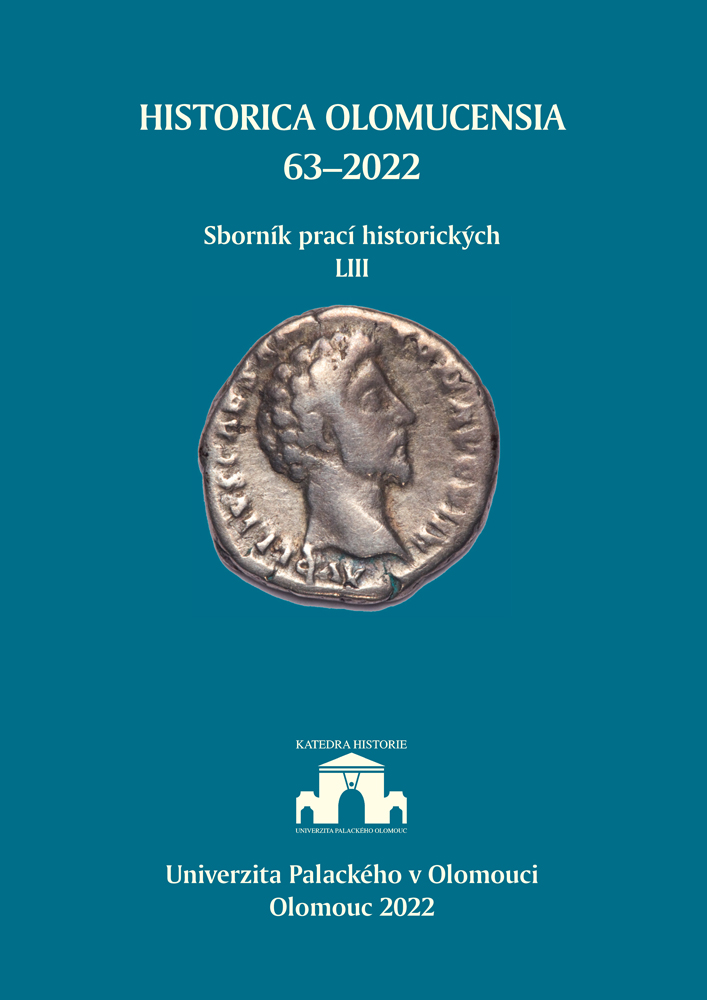Německé obecné školství v Perkově Prostějově
German General Education in Perek Prostějov
Author(s): Pavel KladiwaSubject(s): Cultural history, Ethnohistory, Political history, Social history, Recent History (1900 till today), 19th Century
Published by: Univerzita Palackého v Olomouci
Keywords: Moravia; Prostějov; General education; National relations; Lex Perek;
Summary/Abstract: All of the other localities in the first six largest Moravian towns according to the population census of 1910 (that is in Brno, Moravská Ostrava, Jihlava, Vítkovice and Olomouc) had town hall support for German schooling, while Czech schooling was in the position of minority schooling. The situation was different in Prostějov from the year 1892. Czech local leaders held the town hall and also had a strong position in the overall Moravian context of Czech politics. The Czech town self-government in Prostějov immediately called for maximum support for the development of Czech schooling. Prostějov experienced a significant increase in children at Czech schools and also a marked decrease of children at German schools in the final quarter century of the existence of the monarchy.The Prostějov town self-government worked at the reduction of the number of classes and schools with German as the language of instruction. This was due to the fact that dozens of children from a Czech language environment or from a mixed environment, which Czech national activists viewed as Czech, had attended German schools at the beginning of the twentieth century. It was fairly easy to prevent, however, the dissolution of schools or reduction of the number of classes even in the position in a locality with a minority nationality, by attracting non-local pupils. The fulfilment of one of the already approved capacities was completely under the authority of the management of schools and the town government had practically no power to affect this. Prostějov Czech political leaders were dissatisfied with Czech or supposedly Czech children at German schools, and when they failed with a systematic solution, that is the reduction of German schooling to a capacity amount, so as to only allow them to cover the needs of the German ethnicity, they focused on reclaiming children from German schools. The study analyses in detail only the smaller successes – that is greater than Czech representatives in cities with a German town hall (Brno, Olomouc, Moravská Ostrava…), but still fairly insignificant in relation to the number of reclaimed children. The solid strategy, systematic character and coordination of the Prostějov attempts can certainly be viewed as a success. Přikryl’s memoirs contain clear evidence that the Czech side tried to find valid limits at the beginning of the introduction of Lex Perek and therefore presented the maximum requirements in the complaints, aware of the fact that it would not succeed with everything. The local social-political climate impacting the population and also the parents of the children was a much more significant factor which influenced the decrease in the number of pupils in Prostějov German schools as opposed to the reclaiming of children from German schools. The Czechs in the local environment quickly emancipated and erased the German economic and cultural advantages – a definite indicator in this respect is the decrease in the number of the German community language which amounted to 24.5 % of the population in the census in 1880, but only 6 % of the Prostějov inhabitants in the year 1910. German education was no longer viewed by the parents of children as a factor providing an advantage. The demand for German education decreased significantly in the Czech language and the indifferent or mixed language environment.
Journal: Historica Olomucensia. Sborník prací historických
- Issue Year: LIII/2022
- Issue No: 63
- Page Range: 79-107
- Page Count: 29
- Language: Czech

